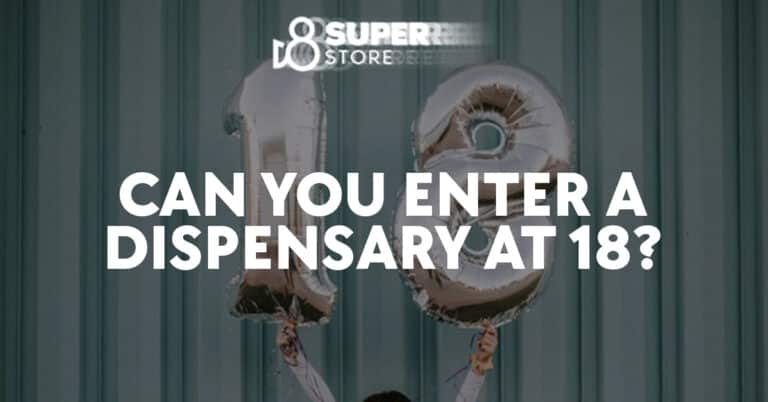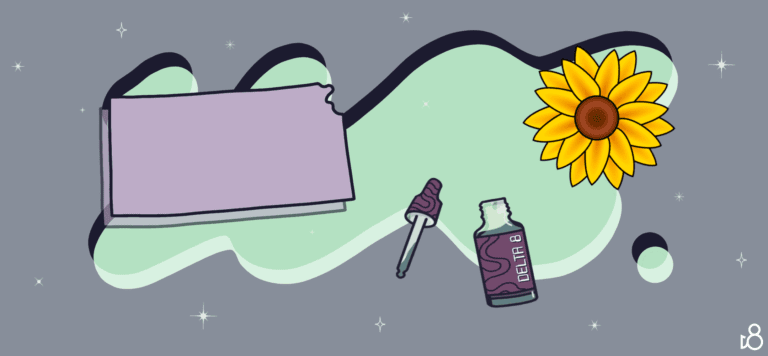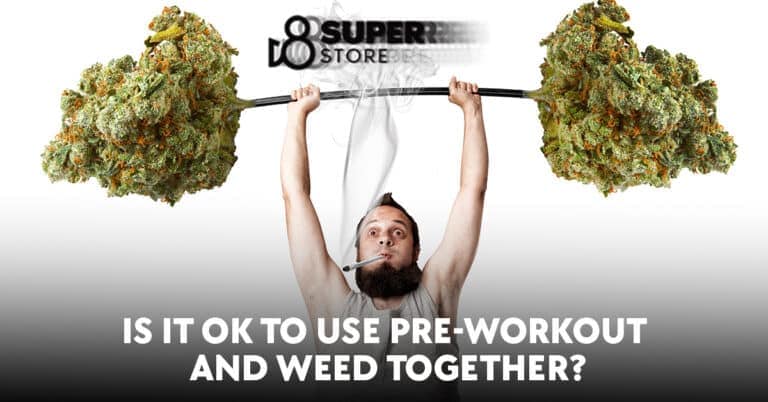Is Delta-11 THC Legal in Nebraska? Navigating the State’s Cannabinoid Regulations
Figuring out if delta-11 is okay to have in Nebraska feels like wandering through a super tricky maze of hemp laws. Since delta-8-THC popped up on the scene, other stuff like delta-11 started to grab the spotlight. Sure enough, the 2018 Farm Bill gave hemp and its family members a big thumbs up legally, but every state has its own rules about which types make the cut.
Table of contents
- Overview of Cannabis and Hemp Laws
- Nebraska State Law and Delta 11 Legality
- Delta 11 THC vs. Other Cannabinoids
- Legal Implications of Possessing Delta 11
- Buying and Selling Delta 11 Products
- Comparison with Other States
- Consumer Safety and Product Quality
- Implications for Interstate Travel
- Emerging Trends and Future Outlook
- Conclusion
Given that Nebraska’s laws evolve and might differ from federal guidelines, it’s important for you to be aware of current state-specific regulations. The state has its own Controlled Substances Act, which determines the legality of various substances. This could impact the status of delta-11, a compound that may fall into a legal grey area due to its psychoactive properties and structural similarities to delta-9-THC, the main intoxicating component of marijuana.
To stay informed and compliant with the law, it is crucial for you to review the most recent information on this topic. Nebraska’s approach to regulating novel cannabinoids, including delta-11, may have significant legal implications for consumers and vendors within the state. Carefully examining the updated provisions relevant to delta-11 will ensure that your understanding aligns with the current legal framework enforced in Nebraska.
Overview of Cannabis and Hemp Laws
You’re navigating a complex landscape when it comes to cannabis and hemp laws. It’s important to distinguish between federal regulations—which oversee the legality of these substances across the US—and individual state laws, like those in Nebraska. Key entities such as the Controlled Substances Act and the 2018 Farm Bill play significant roles in shaping these laws.
Federal Cannabis Regulation
Federal law classifies cannabis, which includes marijuana and various cannabinoids, as a Schedule I controlled substance under the Controlled Substances Act. This categorization deems marijuana to have a high potential for abuse and no accepted medical use, making it illegal federally. Despite this, some cannabis compounds like certain types of CBD (Cannabidiol) have been exempted from this strict regulation, especially when derived from hemp. The DEA (Drug Enforcement Administration) enforces these federal regulations, making it crucial for you to understand which substances are sanctioned and which are not.
2018 Farm Bill Impact
The 2018 Farm Bill significantly impacted the legal framework for hemp in the U.S. It federally legalized the cultivation and sale of hemp, provided it contains less than 0.3% delta-9 tetrahydrocannabinol (THC)—the psychoactive component of cannabis. This legislation effectively removed hemp products with low THC levels from the definition of marijuana under the Controlled Substances Act. As a result, hemp-derived cannabinoids—minus delta-9 THC—are generally lawful at the federal level, unlocking a burgeoning market for hemp extracts and related hemp products. Keep in mind, though, this legislation does not address delta-11 nor its specific legality, which is an emerging area of law.
Nebraska State Law and Delta 11 Legality
As you navigate the complexities of Nebraska state law, it’s paramount to understand where Delta 11 THC stands in terms of legality.
Current State Legislation
Under Nebraska law, certain substances classified as “hemp” are considered legal, provided they contain no more than 0.3% Delta-9 THC on a dry weight basis. However, the legality of cannabinoids similar to Delta-9, such as Delta 11 THC, can be less clear. Legislation has been evolving, and Nebraska’s Controlled Substances Act does not explicitly list Delta 11 THC as either a permitted or banned substance.
Classification of Delta 11 THC
Delta 11 THC is a cannabinoid like Delta-8 and Delta-9. While Delta-9 THC is a well-known psychoactive substance often associated with marijuana, Delta 11 THC is less commonly discussed. This compound’s legal standing may ultimately depend on its source and whether it’s derived from legal hemp or from marijuana, the latter of which remains illegal in Nebraska.
This ambiguity in the state’s legislation leaves you, the consumer, in a challenging position when determining the cannabinoid’s legality. Always verify with the latest state regulations or consult an attorney to ensure compliance with current Nebraska laws.
Delta 11 THC vs. Other Cannabinoids
In understanding the nuances of various cannabinoids, it’s crucial to differentiate Delta 11 THC from its closer relatives, Delta 9 THC and Delta 8 THC, particularly in terms of their effects and legal distinctions.
Delta 11 THC and Its Effects
Delta 11 THC, an isomer of the well-known Delta 9 THC, has unique properties that distinguish it from its more prevalent counterpart. Although less research has been conducted on Delta 11 THC, it’s understood that, much like Delta 9 and Delta 8, it interacts with your body’s endocannabinoid system. The effects of Delta 11 THC may include alterations in perception, mood, and consciousness, given its psychoactive nature. However, Delta 11 THC’s potency and impact as compared to Delta 9 THC and Delta 8 THC are yet to be thoroughly established.
Comparative Legal Status of Delta 9 and Delta 8
The legal status of various cannabinoids has been a point of contention and confusion. Delta 9 THC, the primary psychoactive compound found in cannabis, is federal illegal, but states like Colorado have their own laws permitting its use. Delta 8 THC is a naturally occurring cannabinoid found in low concentrations in the cannabis plant. Its legal status is complicated, as it falls into a gray area due to it being derivable from hemp, which is federally legal. Some states, however, have explicitly banned Delta 8. For context on its legality, discussions about the legality of novel cannabinoids may provide insight into the situation in Nebraska. The status of Delta 11 THC in Nebraska specifically has seen similar debates, with much depending on its source and the state’s ongoing legal framework around cannabis derivatives.
The distinctions between these cannabinoids boil down to their molecular structure, effects, and how lawmakers perceive and regulate them. As you consider the legality and potential effects of these compounds, it’s key to stay informed about ongoing legislative changes.
Legal Implications of Possessing Delta 11
When discussing the legal status of Delta 11, especially in Nebraska, it’s crucial for you to understand not just the legal ramifications but also how they may impact you personally and financially.
Personal Use and Possession
In Nebraska, the legality of Delta 11 hinges upon whether it falls under the state’s controlled substances act. While some cannabinoids like CBD have been legalized for possession and personal use, others remain strictly regulated. Delta 11, a THC analog, might be treated differently from its counterparts due to its psychoactive effects. As of my knowledge cutoff date, you should check the current state legislature and consult with a legal expert to confirm the status of Delta 11 for personal use.
Penalties for Illegal Possession
If Delta 11 is deemed illegal in Nebraska:
- Fines: The financial repercussions can be substantial, potentially amounting to hundreds or thousands of dollars depending on the quantity possessed.
- Felony: Possessing certain controlled substances may lead to felony charges, which can have long-term consequences for your criminal record.
- Recreational Use: Understand that Nebraska has not legalized recreational marijuana, and by extension similar psychoactive substances, which may include Delta 11.
- Safety: Always consider your safety and the health risks associated with any substance.
Buying and Selling Delta 11 Products
When considering the purchase or sale of Delta 11 THC products in Nebraska, it’s important to understand the specific regulations surrounding hemp-derived products, as well as the commercial implications of Delta 11 THC’s legality.
Hemp-Derived Products Regulations
In Nebraska, your ability to buy and sell Delta 11 THC is contingent upon its classification as a hemp-derived product. Hemp-derived products containing Delta 11 THC must comply with federal regulations, which deem hemp and its derivatives federally legal if they contain less than 0.3% Delta 9 THC by dry weight. You should verify that any Delta 11 products meet this criterion to ensure they fall under the legally defined category of hemp.
Commercial Sale of Delta 11 THC
For the commercial sale of Delta 11 THC products, it is imperative for retailers to abide by state laws that are often distinct from federal guidelines. While Delta 11 THC may be federally legal under certain circumstances, the state of Nebraska has the authority to implement its own regulations. Therefore, as a consumer or retailer, stay informed of Nebraska’s stance on Delta 11 THC to ensure all transactions of such products are legally compliant. Keep in mind that legality can influence availability for consumers within the state.
Comparison with Other States
When navigating the complex legal landscape of Delta-11, it’s important to understand how Nebraska’s stance compares with other states across the country.
Legal Landscape in the United States
The legality of cannabis and its various derivates, including Delta-11 THC, varies widely in the United States. You’ll find that states like California, Colorado, and Oregon have established themselves as leaders in cannabis legalization, permitting both medical and recreational use. However, it’s important to consider that each state has its own specific regulations concerning THC levels and the types of products that are legal.
On the other hand, states such as Idaho, Wyoming, and South Dakota have stricter laws, where products with any significant amount of THC are generally illegal. In states like Florida and Ohio, medical cannabis is legal, but the use of recreational cannabis is not. This may include restrictions on certain cannabinoids, potentially affecting the legality of Delta-11.
It’s essential to review the state laws of places like Maine, Michigan, and Massachusetts where recreational and medical cannabis are legal, potentially including Delta-11. Meanwhile, Pennsylvania allows for medical cannabis, but the legality of Delta-11 specifically may not be clear without further legal review.
States such as Texas and Georgia have very specific guidelines on THC levels in cannabis products, which might influence the legal status of Delta-11. In contrast, states like Minnesota and Maryland have taken steps to decriminalize certain cannabis-related activities.
Your understanding of this diverse landscape can help you navigate the legalities in Nebraska by comparing with statutes in places like Nevada, which has a thriving legal cannabis industry, and New York, which has recently passed legislation to legalize recreational cannabis use. Keep in mind that regardless of the general tendency towards legalization or decriminalization in many states, local laws can be exceptionally nuanced, and it is paramount to consult local regulations for the specific details regarding Delta-11.
Consumer Safety and Product Quality
When considering the legality of Delta-11 in Nebraska, it’s important to focus on key aspects of consumer safety and product quality such as THC concentrations and the adherence to regulatory standards.
THC Concentrations and Labeling
You need to be aware of the THC concentrations in Delta-11 products, as they determine the product’s potency and effects. Accurate labeling is paramount to ensure that you are fully informed about what you are consuming. The following is crucial:
- THC Content: Must be clearly labeled with percentages or milligrams.
- Safety Information: Instructions and warnings should accompany the packaging.
Regulatory Standards for Quality
The quality of Delta-11 products is governed by regulatory standards, which aim to maintain consumer safety.
- Standards Compliance: Manufacturers in Nebraska must comply with the relevant regulations.
- FDA Involvement: Although the FDA does not currently regulate Delta-11, products must still meet general safety standards.
- Quality Reports: Most reputable companies will offer access to third-party lab test results, assuring you of the product’s quality.
Remember that product quality directly affects your safety, and it is your right to have access to transparent and accurate information regarding any Delta-11 product you consider using.
Implications for Interstate Travel
When considering the use of Delta 11, it’s crucial to understand the legal landscape as it relates to traveling between states. Your awareness of state and federal regulations can significantly affect your decisions and protect you from unintended legal complications.
Travelling with Delta 11 Products
When you travel with Delta 11 products across state lines, you must remain cognizant of the legal status of these substances both in Nebraska and the states you plan to enter. Even if Delta 11 is legal in Nebraska, this does not guarantee a seamless travel experience. Each state’s laws individualize the treatment of such substances, causing potential legal challenges on the road.
State Laws and Federal Oversight
Federal law and state laws often do not align perfectly when it involves controlled substances. The legal status under Nebraska law might differ from federal regulations, which take precedence on federal property and interstate travel. You should always verify the local laws of your destination and points in transit to avoid the complications of carrying Delta 11 products where they are not permitted.
Emerging Trends and Future Outlook
In the landscape of cannabinoid products, particularly delta-11, you are witnessing an evolving market and potential legal shifts. This section will guide you through the current market trends and anticipate possible changes in the legal status of these compounds in Nebraska.
Market Trends in Cannabinoid Products
Delta-11 has been gaining attention in the realm of cannabinoid extracts. As a derivative with effects similar to the well-known Delta-9 THC, its presence in the market is noteworthy amongst both medical cannabis and recreational use communities. Products infused with various cannabinoids are diversifying:
- Medical applications: Targeting symptom relief with specific cannabinoid profiles.
- Recreational offerings: Featuring a range of extracts, including delta-11, for varied user experiences.
Entrepreneurs and consumers are both keenly observing the progress of cannabinoids like delta-11, watching how they’re being integrated into products like edibles, tinctures, and topical applications.
Potential Legal Changes
Your understanding of delta-11’s legal status is critical. Currently, delta-11 and similar compounds fall into a gray area within Nebraska’s legislation. As you may know, Nebraska has not fully legalized recreational cannabis, but with medical cannabis under consideration, there could be implications for derivatives like delta-11:
- Legislation tracking: Keep an eye on new bills that might explicitly address cannabinoid acids, salts, and derivatives.
- Regulatory changes: Anticipate how state agencies might categorize delta-11 under either controlled substances or regulated adult-use products.
You should remain informed as Nebraska’s legal framework for cannabinoids is likely to keep evolving, potentially aligning with emerging trends in the cannabinoid market.
Conclusion
In Nebraska, your understanding of the legal status of delta-11 THC must be guided by the nuances of state law. While there has been substantial focus on delta-8 and delta-9 THC due to their prevalence, delta-11 is lesser known, and thus specific legislation may not address it directly.
Legally, you should be aware that the federal legality of cannabinoids hinges on their derivation from hemp (containing less than 0.3% delta-9 THC) under the 2018 Farm Bill. Nebraska’s state laws align with these federal guidelines, but they also possess their own Controlled Substances Act. Due to the evolving nature of cannabis laws and the variations in analogues like delta-11, the current statutory environment can be complex.
For safety and legality, you are advised to consult legal counsel or law enforcement in Nebraska for the most accurate and updated information on the legality of delta-11 and other cannabinoids. This will help you navigate any legal grey areas and remain compliant with both state and federal laws.
Always ensure you have credible and up-to-date information from Nebraska authorities to stay informed on the legal landscape regarding cannabinoids within the state.
Frequently Asked Questions
To remain informed about Delta-11 THC in Nebraska, it’s crucial to understand its legal status, effects, and regulations.
What is the legal status of Delta-11 THC products in Nebraska?
You should be aware that the legal status of Delta-11 THC products in Nebraska is nuanced and may be influenced by the state’s Controlled Substances Act and the 2018 Farm Bill. It’s important to check the latest state laws for current information.
Can Delta-11 THC cause intoxication similar to Delta-9 THC?
Yes, Delta-11 THC is a cannabinoid that can have psychoactive effects similar to those of Delta-9 THC, the primary intoxicating component in cannabis.
Are there any restrictions on purchasing Delta-11 THC products in Nebraska?
In Nebraska, there may be age restrictions and other limitations on the purchase of Delta-11 THC products. Look for up-to-date regulations before attempting to buy these products.
Will the use of Delta-11 THC gummies result in a positive drug test?
Delta-11 THC could potentially show up on a drug test, as many tests do not distinguish between different THC isomers.
How does the potency of Delta-11 THC compare to Delta-9 THC?
Delta-11 THC is less researched; however, cannabinoid potency can vary. It’s often compared to Delta-9 THC, but individual responses can differ based on the chemical structure and concentration.
Are there any federal regulations affecting the legality of Delta-11 THC in Nebraska?
Federal regulations, including the Drug Enforcement Administration’s stance on synthetically derived THC, can impact the legality of Delta-11 THC. It’s essential to stay abreast of these federal guidelines as they pertain to Nebraska.







